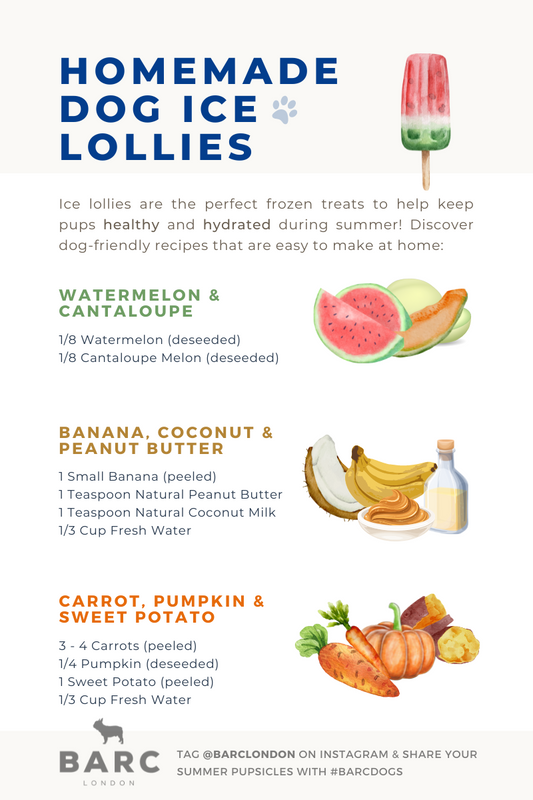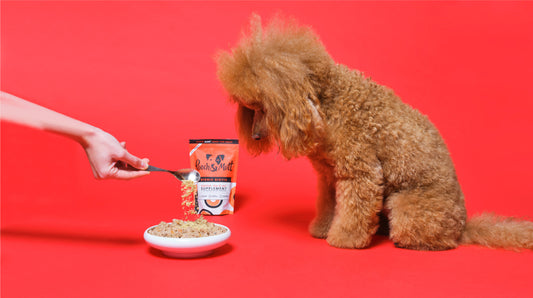Dogs are man's best friend, and we love nothing more than seeing them looking their best. But what about their coats? Keeping a dog’s fur shiny and clean is essential for their health, and it's something that we should all be prioritising as part of our dogs’ grooming routines.
Understanding what type of coat your dog has is an important factor in how often you should be grooming them. For a deeper dive into your dog's needs, you can download our free dog grooming guide. Written by experts, it's the perfect starting point for beginners to grooming and bathing care.
Not only is a shiny coat cute, it also helps dogs regulate their body temperature, keeping them warm in cold weather, and cool in hot weather.
Understanding the health and nutritional factors that keep your dog healthy from the inside, are just as important as the regular grooming and skin care that keep your dog's coat healthy on the outside.
Glossy & shiny dog coat tips:
What does a shiny coat on a dog mean?How do I make my dog’s coat shiny?
Home remedies for a shiny dog coat:

What does a shiny coat on a dog indicate?
The condition of a dog's coat is a great indicator of their overall health. Generally speaking, a healthy coat should be shiny or glossy, soft and smooth. In comparison, a dull looking dog coat can also appear to be brittle and coarse, and is often an indicator of poor health, stress or a diet that’s lacking in nutritional value.
So, when we look at what a shiny dog coat means, there are several factors we need to consider in order to make sure your dog's coat is shiny and healthy from the inside out.
How do I make my dog's coat shiny?
To keep your dog’s coat and skin as healthy as possible, there are different aspects of dog-care that you need to consider. Just like humans, dogs regularly need to be treated to grooming sessions, but it doesn’t stop there.
You also need to focus on the type of dog food and treats that you are feeding your pup, while also considering exercise and regular wellness checkups at the vets.
To help you get started, we’ve put together a few tips to help your dog maintain a shiny coat:
1. Diet & Nutrition
The biggest factor in your dog's overall health (and of course its coat) is a balanced diet. In order for your dog to enjoy a soft coat of fur, you need to provide it with the right nutrition.
If your dog is lacking key nutrients, the first place it will most likely show up is in skin and hair. A balanced diet is made up of proteins, healthy fats (including omega-3 fatty acids), natural oils and carbohydrates.
It is also useful to know that a dog’s coat has 90% protein, so a high-quality protein source is fundamental for your dog's overall coat health.
Your dog should be on a suitable nutritional diet based on his or her breed and age, and you should pay close attention to whether your dog has any issues with digestion, because not all dogs can digest all foods properly. To support their digestive health, consider incorporating a high-quality dog probiotic formula.
We recommend consulting with your vet to get their opinion on the best food for your dog, but the key take away is, with high-quality food, your dog will feel good and look great.
2. Exercise & Time Outdoors
Believe it or not, stress and poor mental or physical health can be another cause of a dull coat. It is vital that your dog gets enough exercise each day. Exercise not only helps to combat brittle coat problems, it also helps to fight:
- Obesity
- Ageing
- Anxiety & depression
- Join problems
As well as this, taking time to exercise can help to improve the bond between you and your dog. Daily dog walks offer lots of benefits - they're fantastic for improving circulation, which helps the blood carry nutrients to the skin and improves the quality of your dog's coat.
3. Bathing
Bathing your dog makes up a big part of the routine required to maintain a shiny coat. How often you bathe your dog will depend on factors such as; your dog's coat type, how quickly they get dirty and their skin sensitivity.
With this being said, it is important not to over bathe your dog, as this could lead to stripping of essential oils, resulting in dry, irritated skin and a dull coat.
When bathing your dog, you should always use products specifically formulated for dogs, as their skin has a different thickness and pH levels to human skin. Human shampoo, including baby shampoo, is far too harsh for their skin. At Barc, we offer products that are balanced and gentle on skin within our dog grooming and wellness range.
4. Checking For Parasites
An important part of dog grooming includes regularly checking your dog’s skin to prevent unwanted parasites. External parasites can irritate your dog which will lead them to scratch, bite or chew at themselves.
Not only can parasites lead to a damaged coat, they can also create small tears in the skin barrier, which have the potential to get infected or leave your dog with unwanted skin conditions.
Internal parasites, as well as being extremely harmful, will also use up vital nutrients and the quality of their coat will diminish. Some parasites can be life threatening, so make sure you have a regular deworming routine in place to keep your dog protected.
We recommend seeking advice from your vet to make sure you have the best protection from parasites for your dog's ages and breed.

Home remedies for a shiny dog coat:
In addition to the above tips, we've included some at home remedies you can try to help keep your dog's coat shiny and healthy:
1. Supplements: Omega & Fish Oils 🐟
Oil is a key factor in coat health, and there are lots of options for supplementing your dog’s omega oils. These Omega oils also offer a number of health benefits to dogs. For example, Omega-6 also helps fight infections, while Omega-3 can boost your dog’s mood and ease arthritis pain.
As always, your vet can advise on the best supplements and brand to use for your dog's breed, age and skin type.
2. Oatmeal Baths 🥛
Oatmeal has amazing anti-inflammatory properties and as a result, can help soothe itchy and irritated skin. An oatmeal bath will also help your dog develop a protective barrier that will lock in moisture and prevent dryness.
3. Coconut Oil 🥥
Coconut oil on fur is a great way to nourish dehydrated skin and hair. You can give your dog coconut as a treat, or you can add a teaspoon of coconut oil to his or her food once a day.
As well as this, to help your dog’s skin oils you can also use coconut oil topically. Simply moisturise your dog’s skin, let it absorb for a few minutes, then rinse your dog off.
Applying coconut oil in this way can also work to make your pup’s coat shinier, but it's best to check with the vet to ensure this home method is suitable for your dog's coat needs.
A healthy coat and skin starts from within
Remember, as with us humans, healthy skin often comes from within. For a happy and healthy dog, you need to focus on more than just the appearance of a glossy coat. Each of these steps will help to nurture healthy skin and fur, and help to prevent health problems from occurring in the future.


